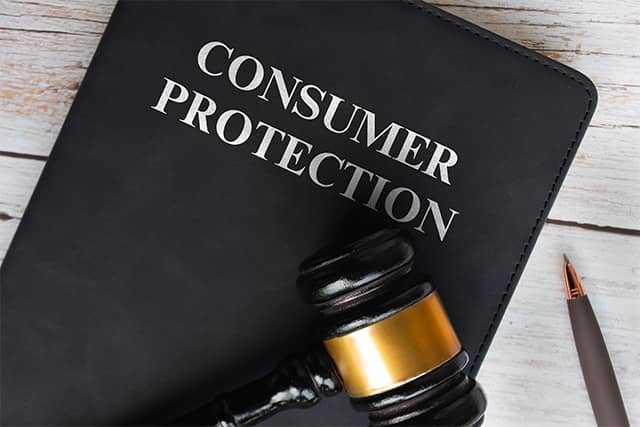
What Constitutes Unfair Business Practices Under Consumer Protection Laws?
As consumers, we expect businesses to operate fairly and ethically. Unfortunately, some companies engage in deceptive or unfair practices to gain an advantage or increase profits at the expense of their customers. That’s where consumer protection laws come in, providing a crucial safeguard against unfair business practices.
But what exactly qualifies as an “unfair business practice” under these laws? Let’s dive into this topic and explore some common examples that every consumer should be aware of.
What are Unfair Business Practices?
Unfair business practices are actions taken by companies that give them an unjust advantage over competitors or cause harm to consumers. These practices are prohibited by various federal and state consumer protection laws, including the Federal Trade Commission Act and state-specific consumer protection statutes.
While the exact definition can vary slightly depending on the jurisdiction, unfair business practices generally include any conduct that:
- Causes substantial injury to consumers
- Cannot be reasonably avoided by consumers
- Is not outweighed by countervailing benefits to consumers or competition
Now, let’s explore some specific examples of unfair business practices that are commonly targeted by consumer protection laws.
1. Bait-and-Switch Advertising
One classic example of an unfair business practice is the bait-and-switch tactic. This occurs when a company advertises a product or service at an attractive price to lure customers in, but then tries to sell them a more expensive alternative once they’re in the store or committed to the purchase.
For instance, a car dealership might advertise a great deal on a specific model, only to tell customers that the advertised car is “no longer available” when they arrive, pushing them towards a pricier option instead.
2. Hidden Fees and Charges
Another common unfair practice involves hiding or obscuring additional fees and charges until after a consumer has committed to a purchase. This can happen in various industries, from telecom providers adding unexpected “administrative fees” to your monthly bill, to hotels tacking on resort fees that weren’t disclosed during booking.
These hidden charges not only mislead consumers about the true cost of a product or service but also make it difficult for them to make informed decisions and compare prices accurately.
3. Deceptive Pricing Practices
Some businesses use pricing tactics that are designed to mislead consumers about the true value or cost of a product. Examples include:
- Perpetual “sales” where items are always discounted from an inflated “original” price
- Drip pricing, where mandatory fees are added throughout the checkout process
- False “going out of business” sales to create a false sense of urgency
These practices can manipulate consumers into making purchases they might otherwise avoid if they had accurate pricing information.
4. Unfair Contract Terms
Many consumer protection laws target unfair terms in contracts or user agreements. These might include:
- Clauses that waive a consumer’s right to sue or participate in class-action lawsuits
- Terms that allow a company to change the contract unilaterally without notice
- Excessive cancellation fees or unreasonable notice periods for terminating services
Such terms can leave consumers at a significant disadvantage and limit their ability to seek recourse if something goes wrong.
5. Predatory Lending Practices
In the financial services industry, predatory lending is a major concern. This can involve:
- Charging excessively high interest rates or fees
- Pushing borrowers into loans they can’t afford
- Using high-pressure sales tactics to get consumers to sign up for loans
- Failing to disclose important terms or risks associated with a loan
These practices often target vulnerable populations, such as low-income individuals or those with poor credit, potentially trapping them in cycles of debt.
6. Misrepresentation of Products or Services
When businesses make false or misleading claims about their products or services, they’re engaging in an unfair practice. This might include:
- Exaggerating the benefits or effectiveness of a product
- Falsely claiming a product can cure diseases or solve complex problems
- Misrepresenting the quality or origin of goods
- Using fake testimonials or endorsements
These deceptive practices can lead consumers to make purchases based on false information, potentially wasting their money or even putting their health at risk in some cases.
7. Unauthorized Billing or Charges
Some unscrupulous businesses might charge consumers for products or services they never agreed to purchase. This could involve:
- “Cramming” unauthorized charges onto phone bills
- Enrolling consumers in subscription services without their knowledge
- Continuing to bill after a service has been cancelled
These practices not only cost consumers money but can also be time-consuming and frustrating to resolve.
8. Unfair Debt Collection Practices
While not all debt collection is unfair, some collectors use tactics that cross the line into unfair business practices. These might include:
- Harassing consumers with excessive calls or threats
- Attempting to collect debts that aren’t actually owed
- Misrepresenting the amount of debt owed
- Contacting consumers at unreasonable hours or at their workplace
The Fair Debt Collection Practices Act (FDCPA) specifically prohibits many of these practices, providing important protections for consumers dealing with debt collectors.
Protecting Yourself from Unfair Business Practices
Understanding what constitutes an unfair business practice is the first step in protecting yourself as a consumer. Here are some additional tips:
- Read contracts and terms of service carefully before signing or agreeing
- Research companies and products before making purchases
- Be wary of deals that seem too good to be true
- Keep records of all transactions and communications with businesses
- Report suspected unfair practices to your state’s consumer protection office or the Federal Trade Commission
If you believe you’ve been a victim of unfair business practices, don’t hesitate to seek help. At Ware Law Firm, we’re committed to protecting consumers’ rights and fighting back against unfair and deceptive business tactics. Our experienced consumer law attorneys can help you understand your rights, navigate the legal process, and seek justice if you’ve been wronged by a business.
Remember, knowledge is power when it comes to consumer protection. By staying informed about unfair business practices and your rights under consumer protection laws, you can make smarter decisions and help create a fairer marketplace for everyone.




